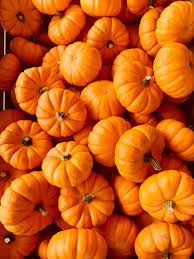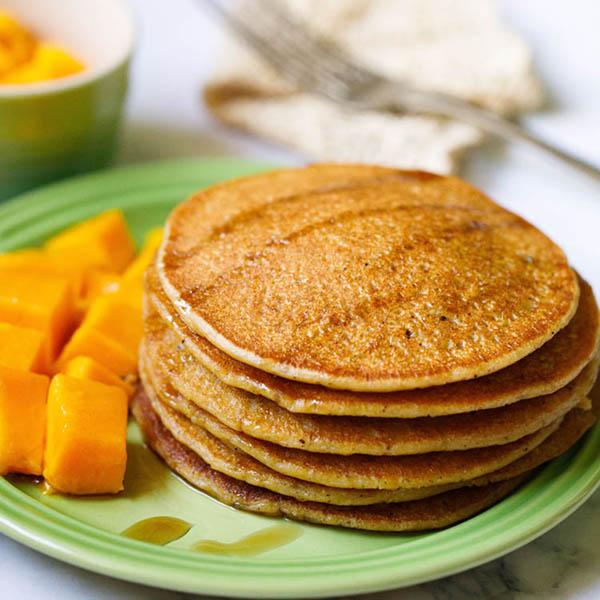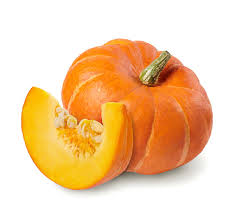Pumpkin is a plump, nutritious orange vegetable, and a highly nutrient-dense food. It is low in calories but rich in vitamins and minerals, all of which are also in its seeds, leaves, and juices.

Pumpkin is a variety of squash that people often think of as a traditional Halloween decoration or a Thanksgiving pie filling.
There are many ways to incorporate pumpkin into desserts, soups, salads, preserves, and even as a substitute for butter.
Eating pumpkin is good for the heart. The fibre, potassium, and vitamin C content in pumpkin all support heart health.
High blood pressure is a risk factor for cardiovascular disease (CVD). Typically, reducing sodium intake involves eating meals that contain little or no salt.
According to the National Institutes of Health (NIH) Office of Dietary Supplements, consuming more potassium may also reduce the risk trusted source of other types of CVD.
More research is necessary to confirm the effects of pumpkin consumption on stroke and CVD risk.
Including pumpkins in the diet may help people control diabetes and their blood sugar levels.
Although the study did not involve humans, the research shows some potential for these plant compounds to limit type 2 diabetes.
Due to their impact on blood sugar, scientists may be able to rework them into an antibiotic medication, though further studies are necessary Trusted Source.
Fortunately, eating the right nutrients can lower your risk of sight loss. Pumpkin is plentiful in nutrients that have been linked to strong eyesight as your body ages.

For instance, its beta-carotene content provides your body with the necessary vitamin A. Research shows that vitamin A deficiency is a very common cause of blindness.
In an analysis of 22 studies, scientists discovered that people with higher intakes of beta-carotene had a significantly lower risk of cataracts, a common cause of blindness.
Pumpkin is also one of the best sources of lutein and zeaxanthin, two compounds linked to lower risks of age-related macular degeneration (AMD) and cataracts.
Additionally, it contains good amounts of vitamins C and E, which function as antioxidants and may prevent free radicals from damaging your eye cells.
Pumpkins contain a wealth of antioxidants. Vitamin C, vitamin E, and beta-carotene support eye health and prevent degenerative damage in older adults.
The results showed that high doses of vitamin C, vitamin E, and beta carotene had links to a significantly reduced risk of age-related macular degeneration.
Pumpkin also provides a range of essential vitamins and minerals, including:
- vitamin A
- vitamin C
- vitamin E
- riboflavin
- potassium
- copper
- manganese
- thiamin
- vitamin B-6
- folate
- pantothenic acid
- niacin
- iron
- magnesium
- phosphorus
Pumpkins are a fantastic source of fibre. The recommended intake of fibre is between 25 g and 38 g per day for adults.
Fibre slows the rate of sugar absorption into the blood, promotes regular bowel movements, and smooths digestion. A healthy fiber intake can also help reduce the risk of colon cancer.
There are many ways people can eat more pumpkins. Preparing fresh pumpkin at home will deliver the most benefits for health, but canned pumpkin is also a great choice. Pumpkin retains many of its health benefits in the canning process.
People should steer clear of canned pumpkin pie mix for regular consumption. This is usually next to the canned pumpkin in grocery stores and is often in a similar can. It contains added sugars and syrups.
The canned pumpkin should have only one ingredient, which is pumpkin.
Although the variety of pumpkins that feature in the making of jack-o-lanterns is edible, it is best to cook with sweet or pie pumpkin varieties.
Pumpkin is a type of winter squash that belongs to the Cucurbitaceae family.
It’s native to North America and particularly popular around Thanksgiving and Halloween.
In the US, pumpkin typically refers to Cucurbita pepo, an orange type of winter squash. In other regions, such as Australia, pumpkin may refer to any type of winter squash.
While commonly viewed as a vegetable, pumpkin is scientifically a fruit, as it contains seeds. That said, it’s nutritionally more similar to vegetables than fruits.
Free radicals are molecules produced by your body’s metabolic process. Though highly unstable, they have useful roles, such as destroying harmful bacteria.
However, excessive free radicals in your body create a state called oxidative stress, which has been linked to chronic illnesses, including heart disease and cancer
Pumpkins contain antioxidants, such as alpha-carotene, beta-carotene and beta-cryptoxanthin. These can neutralize free radicals, stopping them from damaging your cells.
Test-tube and animal studies have shown that these antioxidants protect skin against sun damage and lower the risk of cancer, eye diseases and other conditions.
However, keep in mind that more human-based research is needed to make health recommendations.
